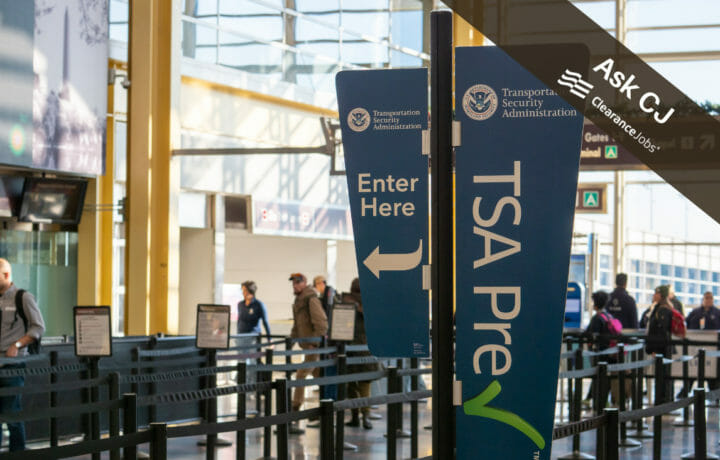Self Reporting is even more important in the era of continuous evaluation, where criminal conduct or security violations will make their way to your security officer whether you report them or not. A recent Reddit user was interested to know if a TSA fine they incurred for bringing a firearm to the airport was something they needed to disclose:
I have a Secret security clearance in the transportation side of the government. Today, I got caught with a firearm at a TSA checkpoint. I’m an idiot I know.
Should I tell anybody? No criminal charges filed; I just need to wait for a NOV in the mail and pay my $3,000 – $10,000 fine. Could this effect my security clearance? I have a review next month for a TS/SCI clearance as I am being evaluated for a pronation. Will they find out about this? Or should I just send the email now and try to head it off?
NOTICE OF VIOLATION AT TSA CHECKPOINTS
Traveling seems to be back in full swing this summer after a yearlong hiatus. Ensuring that you are not packing prohibited items is critical, as carrying things like firearms can cause delays and lead to some hefty, often avoidable fines (potentially even an arrest).
For the security clearance holder, this is never a fun thing to report to your Facility Security Officer (FSO).
Per TSA, it is acceptable for flight passengers to carry an unloaded firearm in checked baggage so long as they are locked and secured, and the transport is announced to the airline prior to travel. If, like the user above, you ever find yourself accidentally packing heat in the airport, the Notice of Violation (NOV) paperwork you will receive from TSA, will require the violator to pay a penalty between $3,000 and $5,000. Usually, you have to pay within 30 days.
SELF-REPORTING TO YOUR FSO
Transporting a loaded firearm, or one that is unloaded but has accessible ammunition, can lead to payments of up to $10,000, plus criminal referrals or even higher fines if it’s a repeat violation. Should you report? Sure. Hiding anything involving a penalty with a government organization is never a good look.
SEAD 3 self-reporting policy requires that clearance holders report criminal conduct and other violations. You don’t need to report the violation to your supervisor, but should report is directly to your facility security officer or cognizant security authority – whoever provides your annual clearance refresher training or submitted you for your security clearance is the same person you should stay in touch with to report potential issues. Just because you report something doesn’t mean it will trigger an investigation, either. But failing to report it could result in personal conduct clearance violations and put you in hotter water with both your company or agency and security clearance status.
Next time you travel, consider checking your luggage to be sure you aren’t carrying any prohibited items to avoid a possible arrest and penalties.




